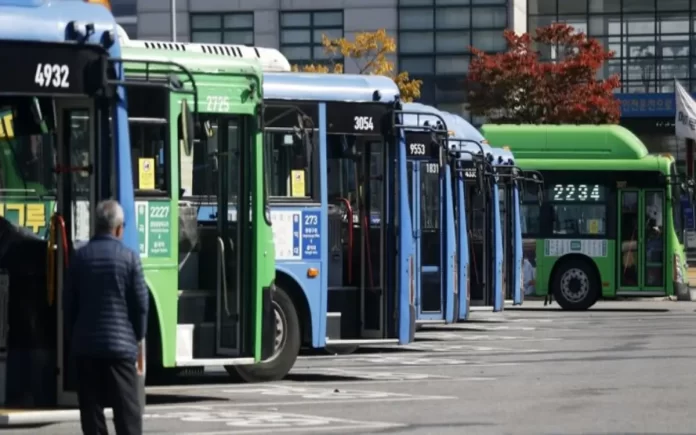Seoul: Bus drivers in Seoul, South Korea, initiated a strike on Thursday after negotiations for a wage increase fell through, leading to disruptions in the daily commute for over 9 million city residents and an additional million from the surrounding areas.
Anticipating disruptions during peak hours, the Seoul Metropolitan Government announced extended subway services, with additional trains deployed to accommodate commuters. Additionally, the city’s 25 districts arranged for 480 shuttle buses to transport passengers to subway stations.
This full-scale strike by the city’s bus drivers marks the first in 12 years, contrasting with their previous brief strike, lasting approximately 20 minutes. Negotiations between the Seoul Bus Labor Union, representing drivers serving 97% of bus operations, and employers faltered when the union’s demand for a 12.7% hourly wage hike was deemed “excessive” by employers, as reported by Yonhap.
Read More: Macron Labels EU-Mercosur Proposal ‘Very Bad Deal’ During Brazil Visit
According to Yonhap, commuters in Seoul found themselves bewildered on Thursday morning, some unaware of the strike after talks collapsed before dawn. Yoon Jong-jang, head of the Transportation Planning Bureau at the Seoul Metropolitan Government, expressed commitment to facilitating an agreement, stating, “We’ll make an all-out effort to smoothly reach an agreement between the union and the management soon.”
Seoul’s bus system operates under a quasi-public model, wherein private companies manage buses subsidized and regulated by the city government to ensure service accessibility. Mayor Oh Se-hoon emphasized the urgency of a resolution, stating, “City buses are the legs of the citizens; their livelihood and daily lives literally depend on them.”
Meanwhile, South Korea grapples with an ongoing doctors’ strike as thousands of trainee doctors protest against the government’s plan to increase medical school admissions. Critics advocate for improving trainee doctors’ working conditions, while the government maintains that the plan is essential to address a shortage of doctors in one of the world’s fastest-ageing societies.



